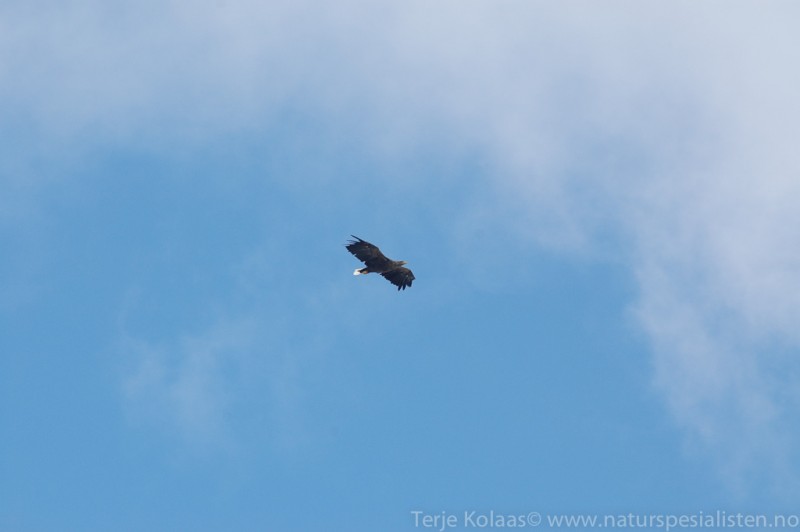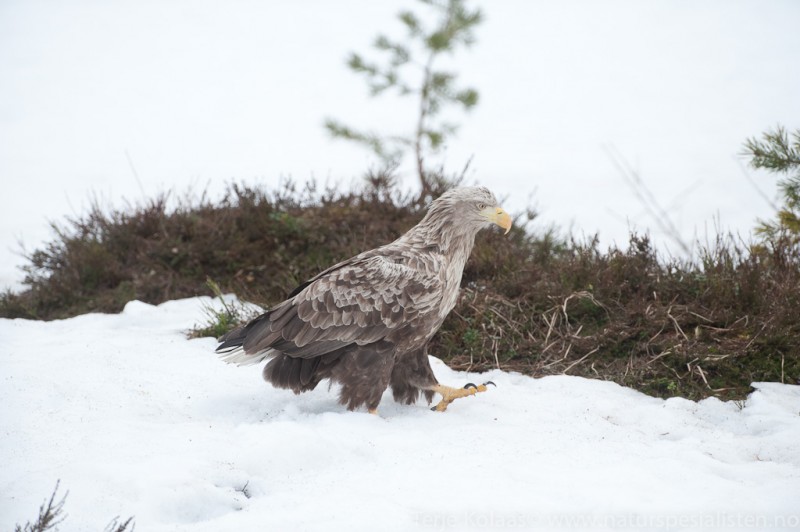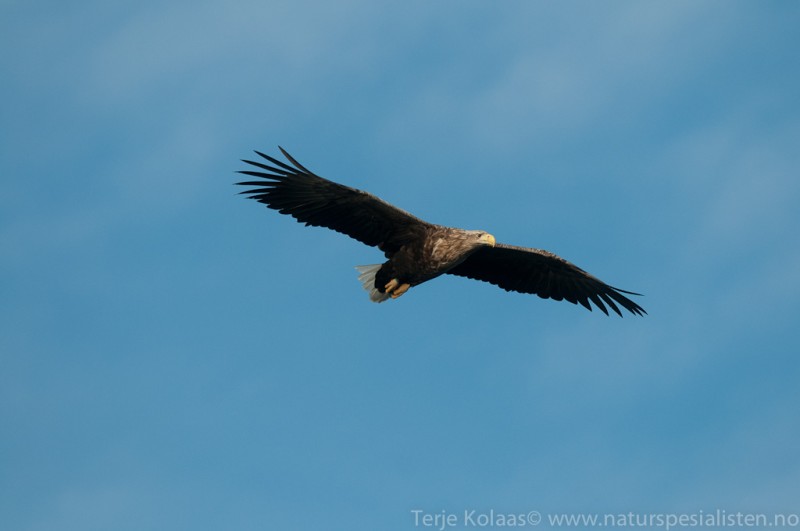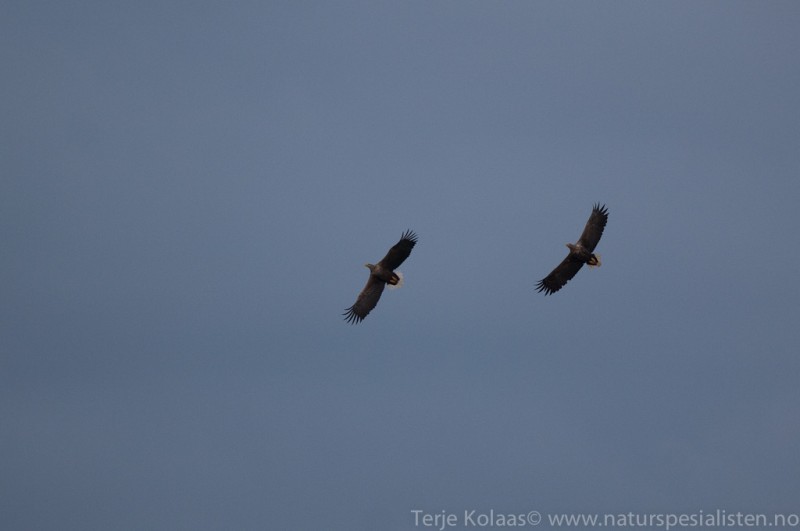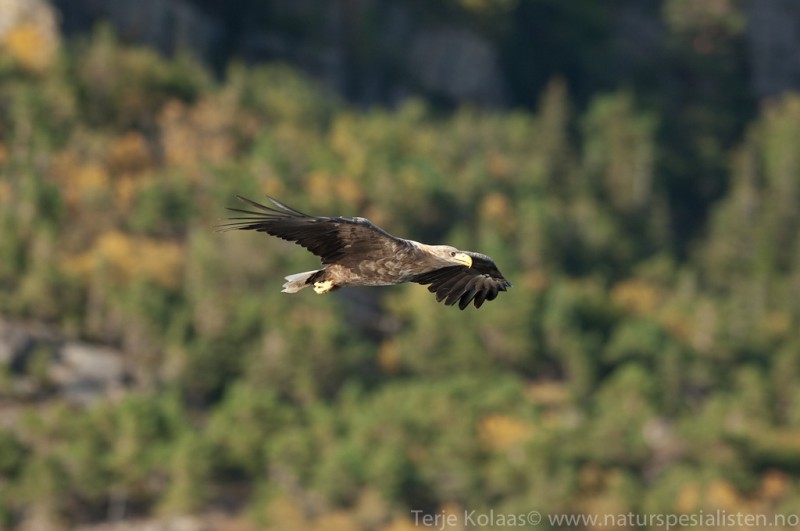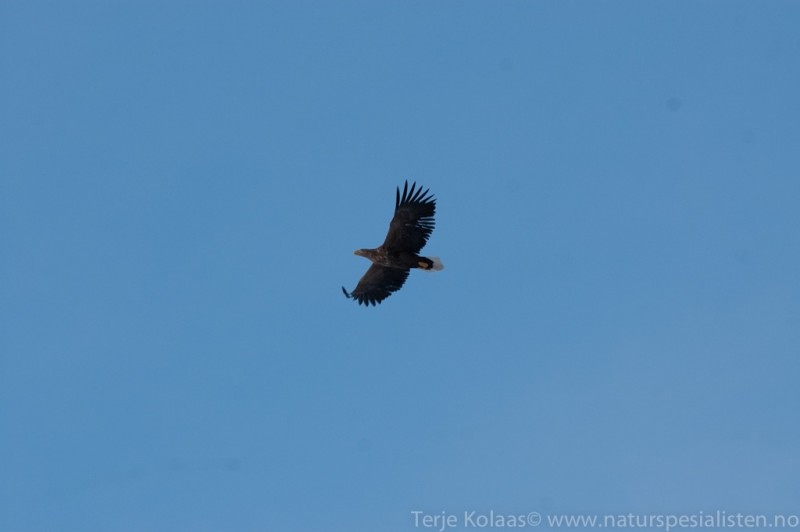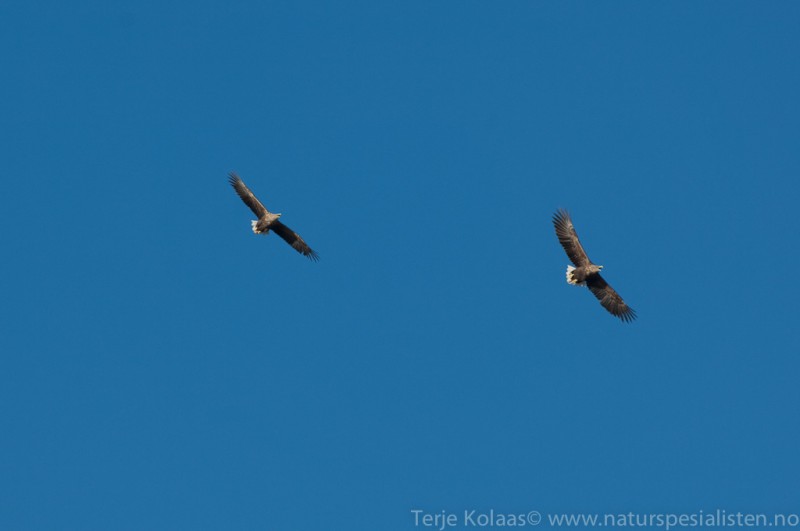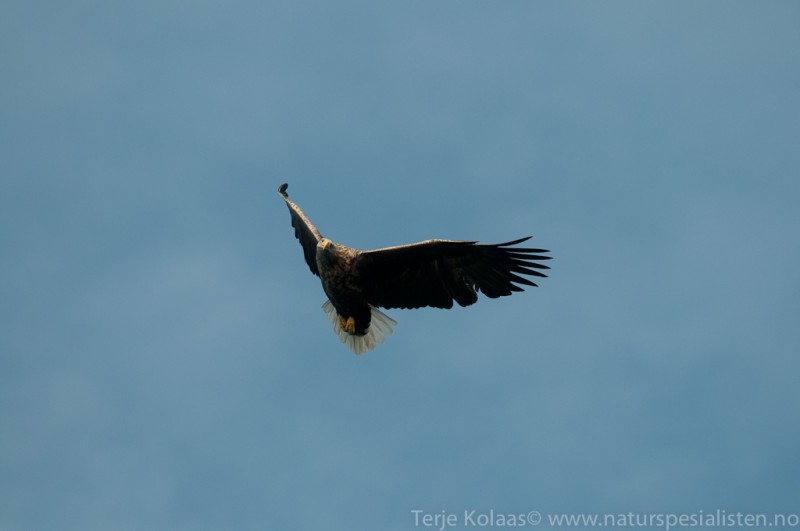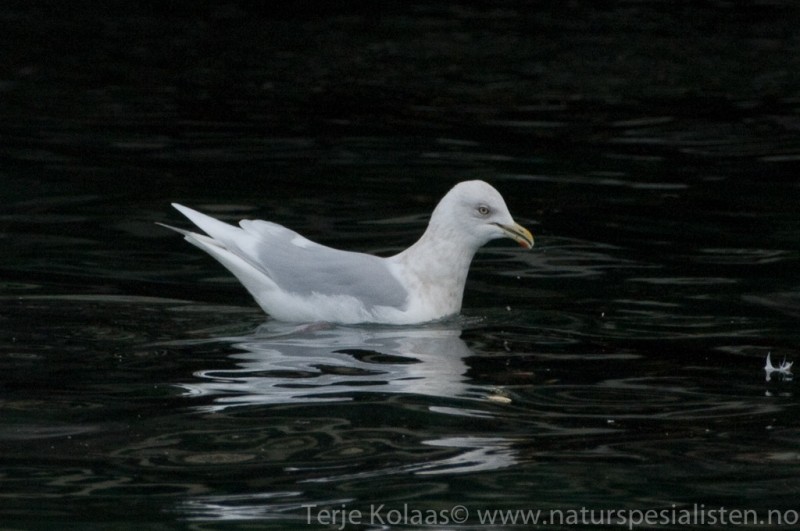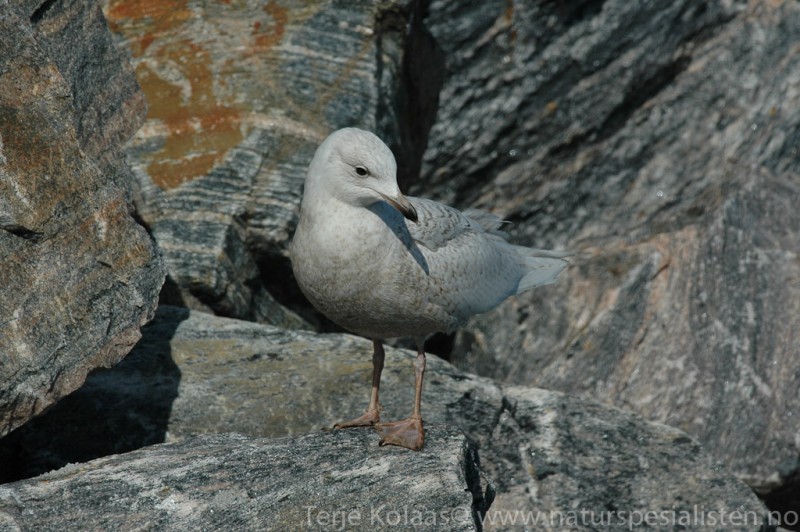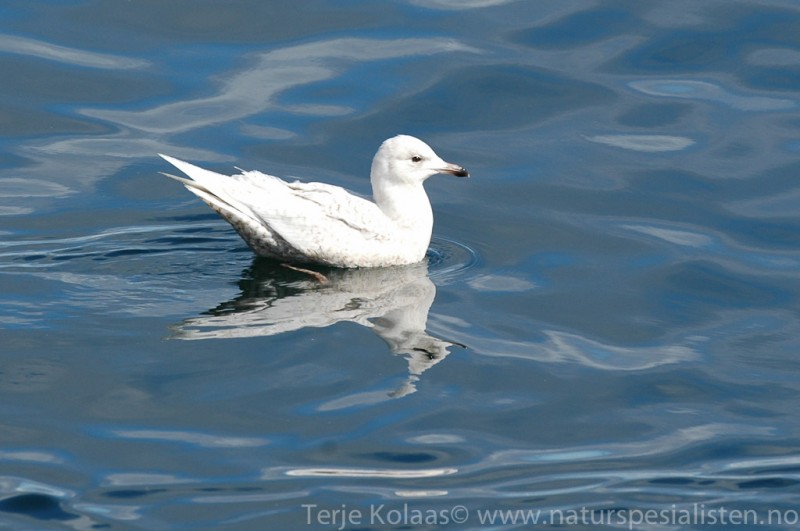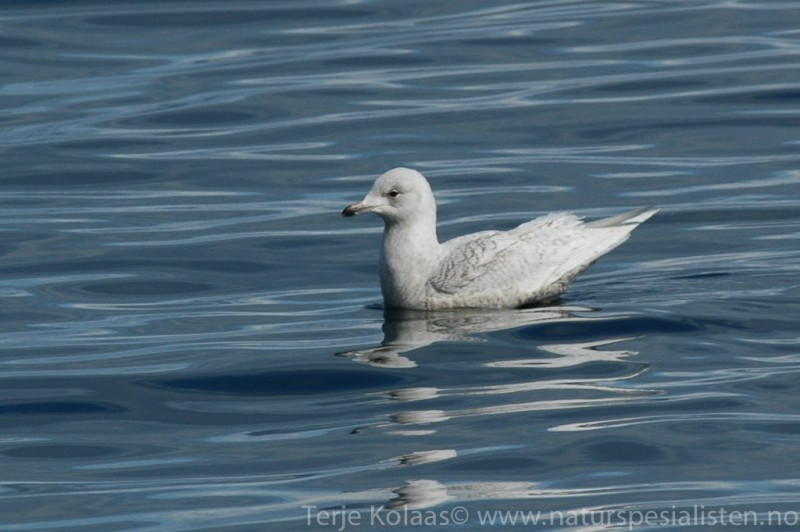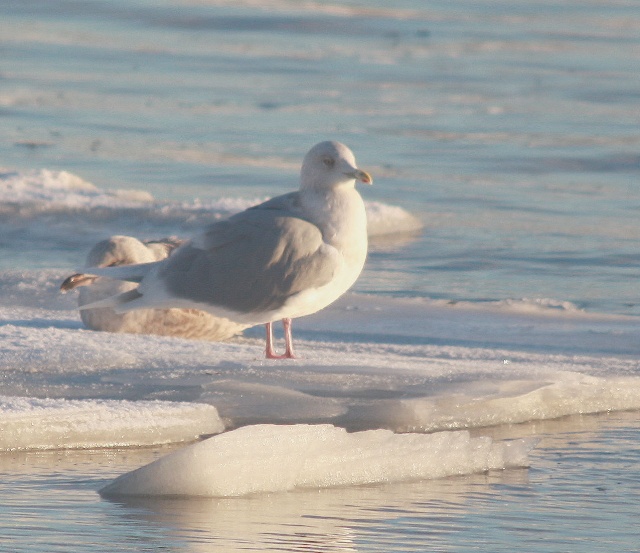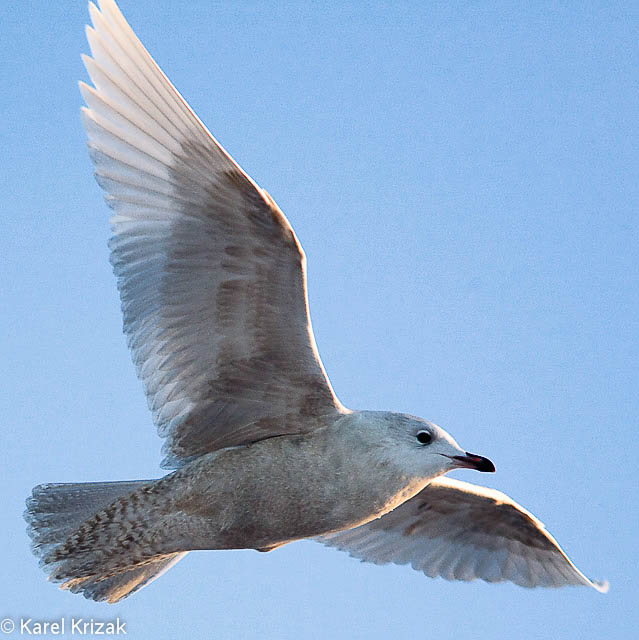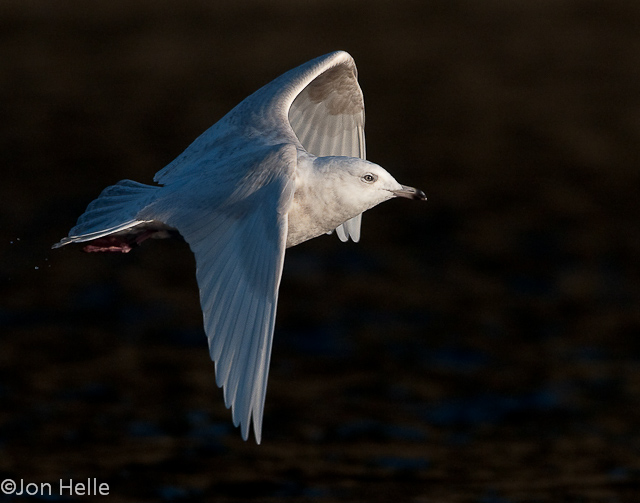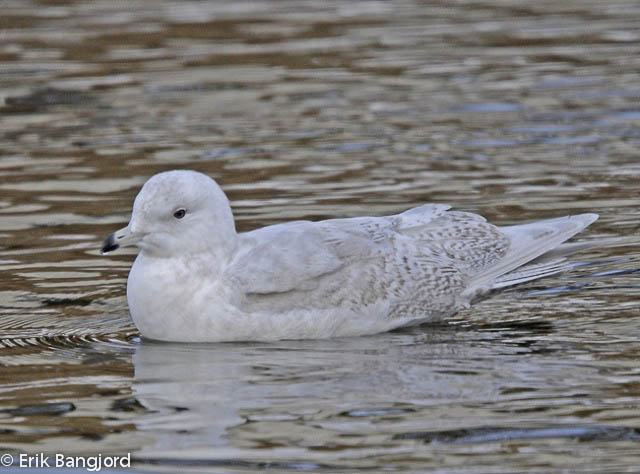White-tailed Eagle (Haliaeetus albicilla)
Iceland Gull (Larus glaucoides)
Diagnostic flight profile with rectangular, uniformly broad and deeply fingered wings. Long neck and short, wedge-shaped tail. Bill very heavy and tarsus unfeathered. Adults with pale, yellowish head and white tail. Juveniles uniformly brown with dark tail. Females bigger than males. Flight pattern: Long sequences of shallow wing-beats, and only limited glides (as opposed to Golden Eagle).
Sound:A sharp high-pitched clear "klyytt klyytt klyytt klyytt" is often heard. Uttered with some variation in pitch and timbre. Sometimes more raucous and not so high pitched.
Contact call:
Distribution:
Wikipedia: map (se also Xeno-canto below)
Ecology:Birdlife ecology
Links:
Observation.org Latest observations
Image search Flickr NB! May give other species
CCSounds:Recorded by Martin Miethke,http://www.xeno-canto.org ,CC license
All white wingtips like Glaucous Gull. Told apart from latter by rounded head, longer wings and shorter, more slender bill. Bill shorter than half the length of head, and lacks prominent hook. Primaries extends well past tail in sitting birds, and the whole rear of the bird seem slimmer. Eye bigger than in Glaucous Gull, with a more "gentle" expression. Comparison with nearby Herring Gulls fruitful. Iceland Gull often smaller than Herring Gull, and less heavy, while Glaucous Gull usually larger. Impression reinforced by Iceland's agile maneuvering.
Sound:Like Herring Gull, but tone sharper.
Distribution:Wikipedia: map (se also Xeno-canto below)
Ecology:Birdlife ecology
Links:
Observation.org Latest observations
Image search Flickr NB! May give other species
CC
 English
English Albanian
Albanian
 Armenian
Armenian
 Bulgarian
Bulgarian
 Catalan
Catalan
 Croatian
Croatian
 Czech
Czech
 Danish
Danish
 Dutch
Dutch
 Finnish
Finnish
 French
French
 Georgian
Georgian
 German
German
 Greek
Greek
 Hungarian
Hungarian
 Italian
Italian
 Latvian
Latvian
 Lithuanian
Lithuanian
 Macedonian
Macedonian
 Norwegian
Norwegian
 Polish
Polish
 Portuguese
Portuguese
 Romanian
Romanian
 Russian
Russian
 Sami : Lule sami
Sami : Lule sami
 Sami : North sami
Sami : North sami
 Sami : South sami
Sami : South sami
 Scientific names
Scientific names
 Serbian
Serbian
 Spanish
Spanish
 Swedish
Swedish
 Ukrainian
Ukrainian


